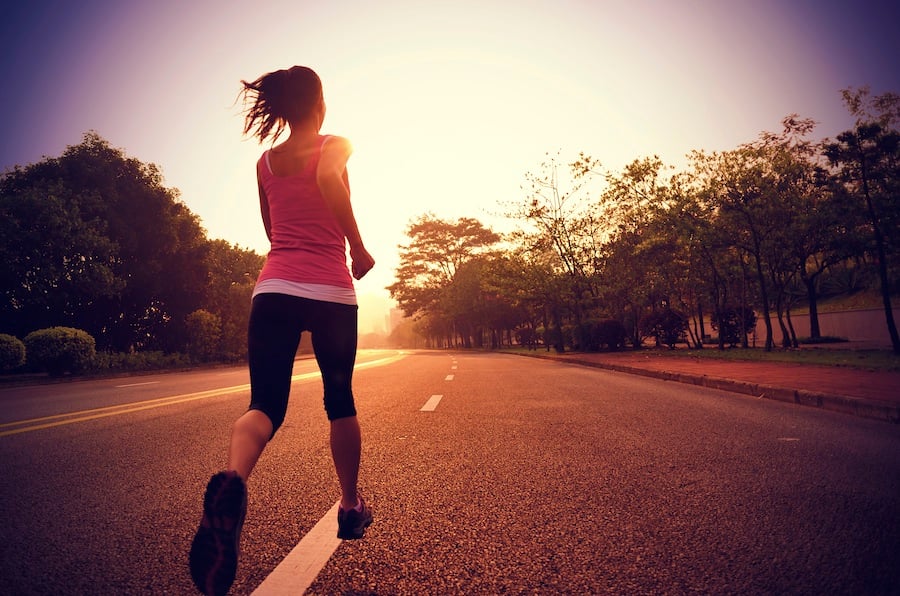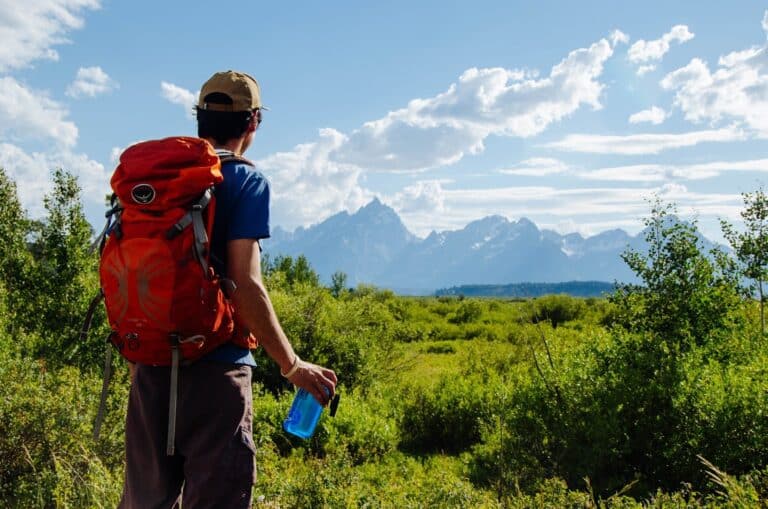“Exercise pills” still have a long way to go before they can match the benefits of time spent outside.
“That’s one of the dumbest ideas EVER,” claims Dr. Michael Merzenich.
The idea in question? Exercise pills: the flash pan scientific wonder of 2017 which, based on studies completed on mice, promised a swallow-able alternative for getting some of the physical benefits of exercise.
Merzenich, a professor emeritus and neuroscientist at the University of California San Francisco, doesn’t share in the excitement. Merzenich has been studying the plasticity of the brain: the tendency of your brain to evolve and fine-tune itself. The brain’s plasticity would suffer from so-called exercise pills, especially when compared to time spent outside.
The Wonder Drug
When Ronald Evans—a biologist at the Salk Institute—and his team rolled out their study on the drug GW501516 (known colloquially as “516”), the headlines read, “Exercise pill could deliver benefits of fitness in tablet form” and “Scientists Are Working on a Pill to Replace Exercise.” Evans’s experiments involved a pair of lab mice, one named “Couch Potato Mouse” and the other “Lance Armstrong Mouse,” both of which had been given an American diet of sugar and fat. One of the mice, which had not been allowed much exercise, had visibly gained weight. The other, also lacking exercise, appeared in much better shape. The only difference: Lance had his diet supplemented with 516.
The drug, which simply-put is designed to recreate the same chemical changes that happen in the body after exercise, was heralded as a wonder drug and a futuristic-yet-possible option for everyone, including busy executives without the time to exercise, those with medical issues that prevent them from exercising, truck drivers and others with long sedentary hours on the job, and even elite athletes looking for a boost. In addition to weight loss, blood sugar decreases, and other chemical benefits, the drug allowed mice using it to run longer on a treadmill. But when it comes to completely replacing physical exercise—especially when that exercise comes from hiking or biking or another outdoor activity—the drug might leave a lot to be desired.
Hiking for Your Brain
While exercise pills might replicate some of the physical benefits of exercise, something as simple as taking a hike still offers a lot that a drug can’t, particularly when it comes to the brain, Dr. Merzenich explains.
Keeping your brain in top shape requires exercising it, he says, and one of the best ways to do that is by going for a walk in the woods, which Merzenich contrasted with walking on pavement. “Every footfall is certain, there,” he said, compared to an uneven trail which requires millions of tiny recalculations by the brain, processing vision and other senses, then recalibrating for balance and control. Troubleshooting and navigating, looking for animals and plants, and dealing with the unexpected are all tasks human brains were originally doing constantly, but have since diminished, thanks to artificial aspects of civilization.
“We used to be masters of our environment,” he said. “But now, you’re depriving yourself of thousands and thousands of [mental] exercises by living your life on pavement. Our brains love surprises.” These micro exercises, he says, train our brains to operate at a higher resolution, improve recognition, and speed up its ability to process the environment even more. “In order to continually grow it, you have to continually challenge it and continually sustain it.”
Even working out in gyms, he contends, isn’t exercising the mind like it needs, but the proposition of an exercise pill, he says, would be truly damaging—none of these brain benefits come from 516.
There’s an App for That
That’s not to say drugs like 516 are useless. Particularly for people who are incapable of exercise—due to disease or injury, the elderly, or any one of a cadre of people who have a difficult time going for a hike—could benefit dramatically from an exercise pill, maintaining their bodies in ways that would have otherwise been impossible.
Little progress on 516 has been made public since the initial study, but that one drug isn’t the only one taking advantage of the chemical benefits of exercise, without the exercise. More recently, a different study looked at the hormone irisin, which is naturally released during physical activity and has been linked to fat burning, noting that it could also protect against mental decline and Alzheimers.
“Although this study was only in mice, it adds to mounting evidence of the relationship between lifestyle factors, like physical fitness, and dementia,” said Dr. James Pickett, Head of Research at Alzheimer’s Society. “We know that exercise can decrease a person’s risk of developing dementia, but still have lots to learn about its effect on cognitive decline.”
The mental benefits lost by an exercise pill can be made up, at least in part, in other ways as well. Merzenich helped found Brain HQ, a web-based brain training and exercise platform designed to provide similar mental stimulation to outdoor exercise. According to Merzenich, it can be especially helpful to people who need to rapidly improve their mental function or those, similar to the target of the exercise pill, who aren’t able to stimulate and train their brain naturally.
”The biggest change we could see from an exercise pill might come in how we define exercise at all, in much the same way as how the concept of food has morphed into a vehicle for nutrients,” says Nicola Twilley, author of the 2017 New Yorker story “A Pill to Make Exercise Obsolete.”
“A morning jog will be reclassified as a good source of beneficial chemicals; sports may be redesigned to optimize their molecular outcomes. A scientific understanding of the parts may well come at the expense of appreciating the immeasurable whole.”
A true exercise pill is still a long way off, and it’s still far from replacing the benefits of exercise. And as Merzenich points out, there already is a ready-made wonder drug accessible to everyone: outside.








